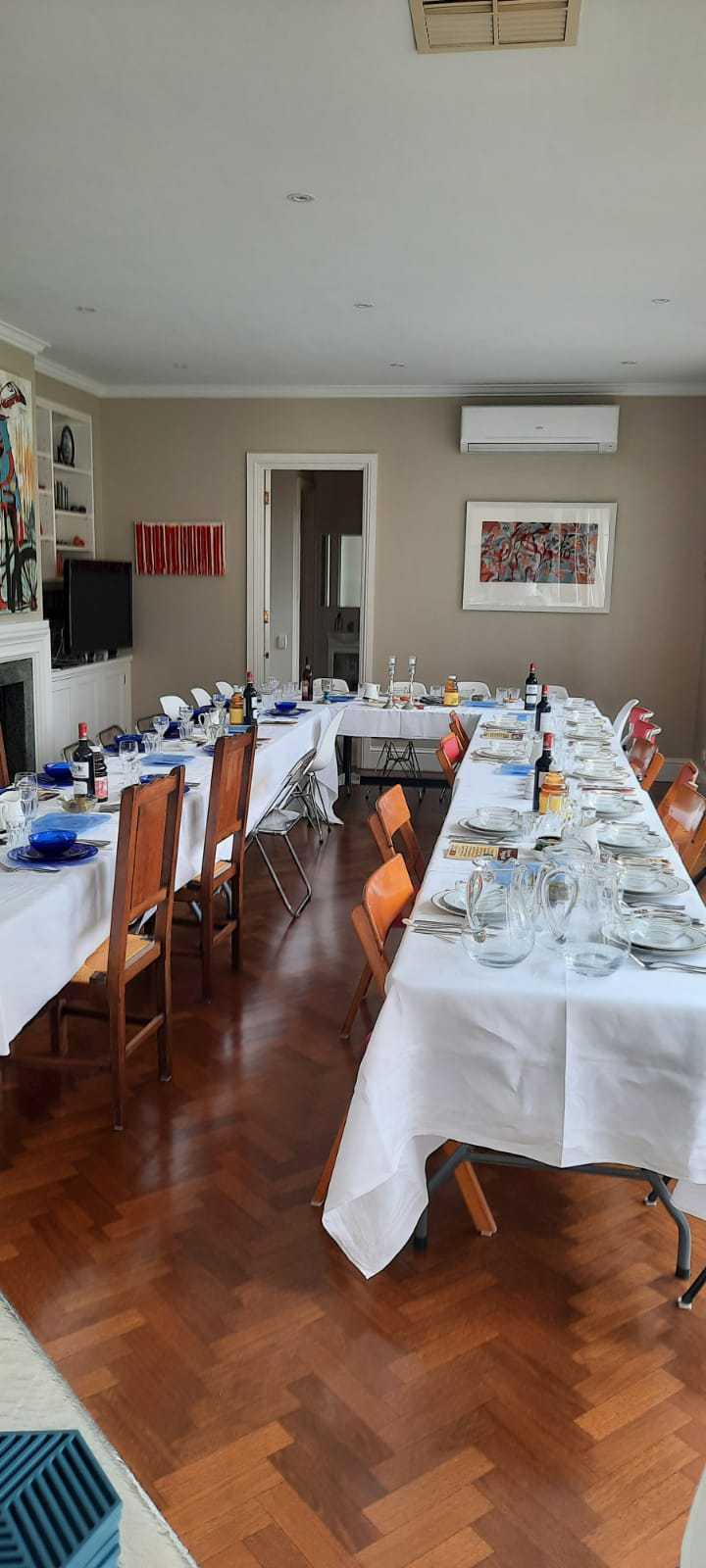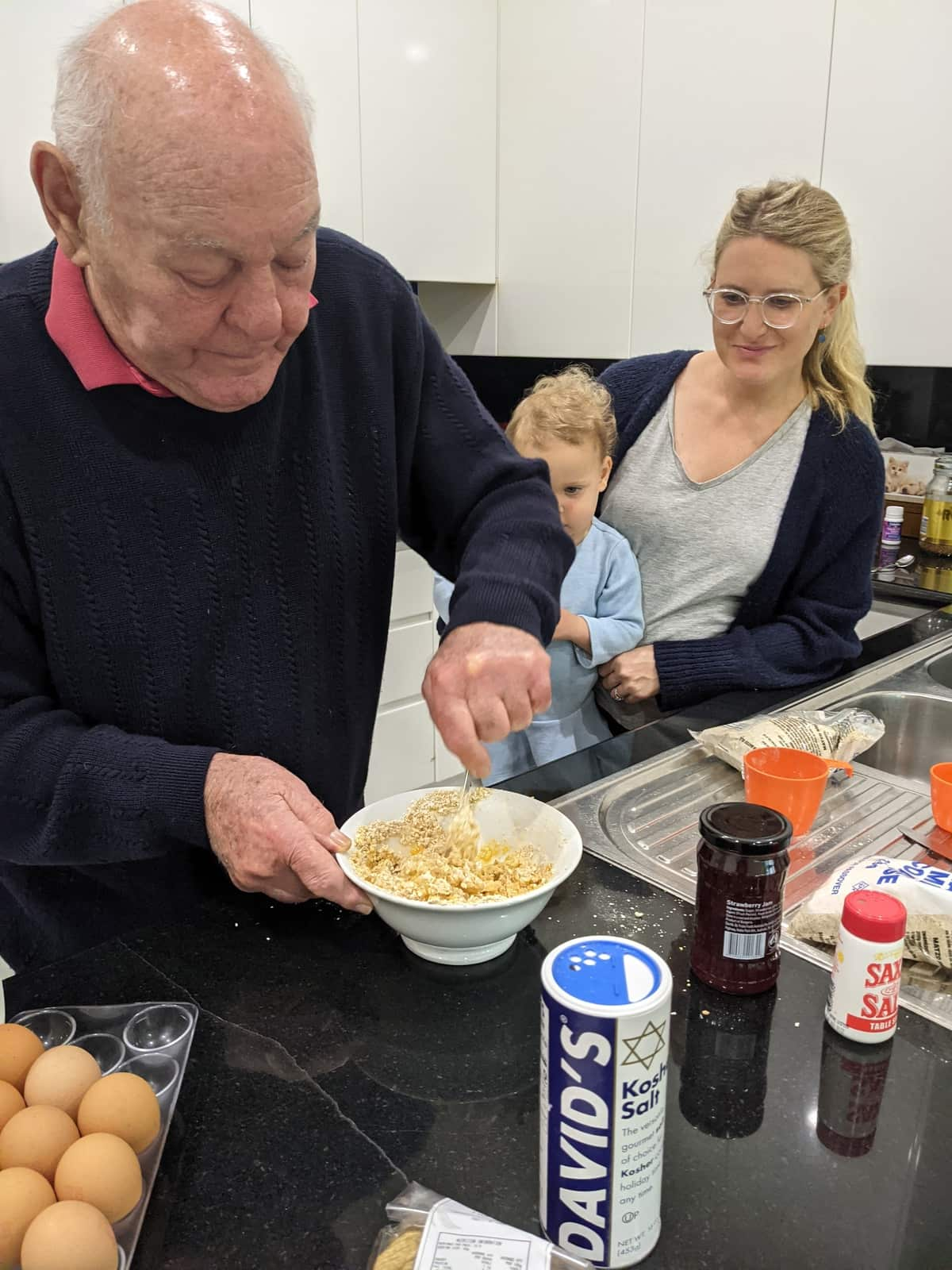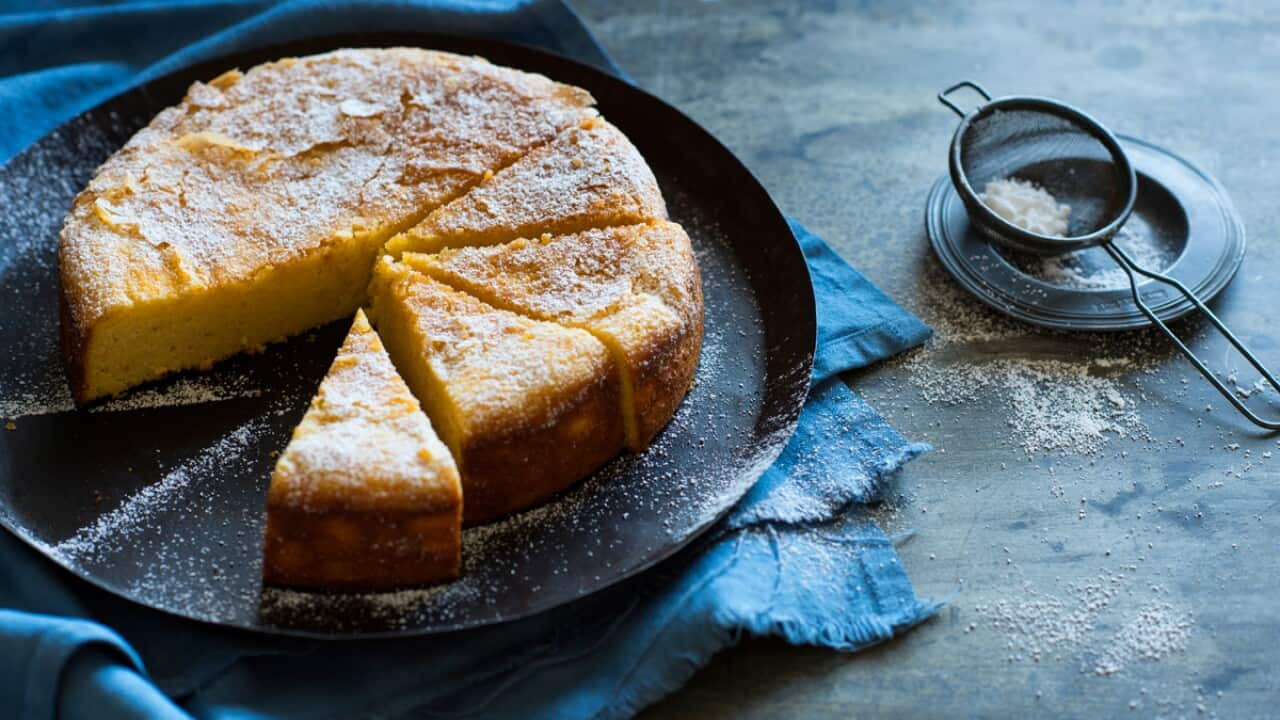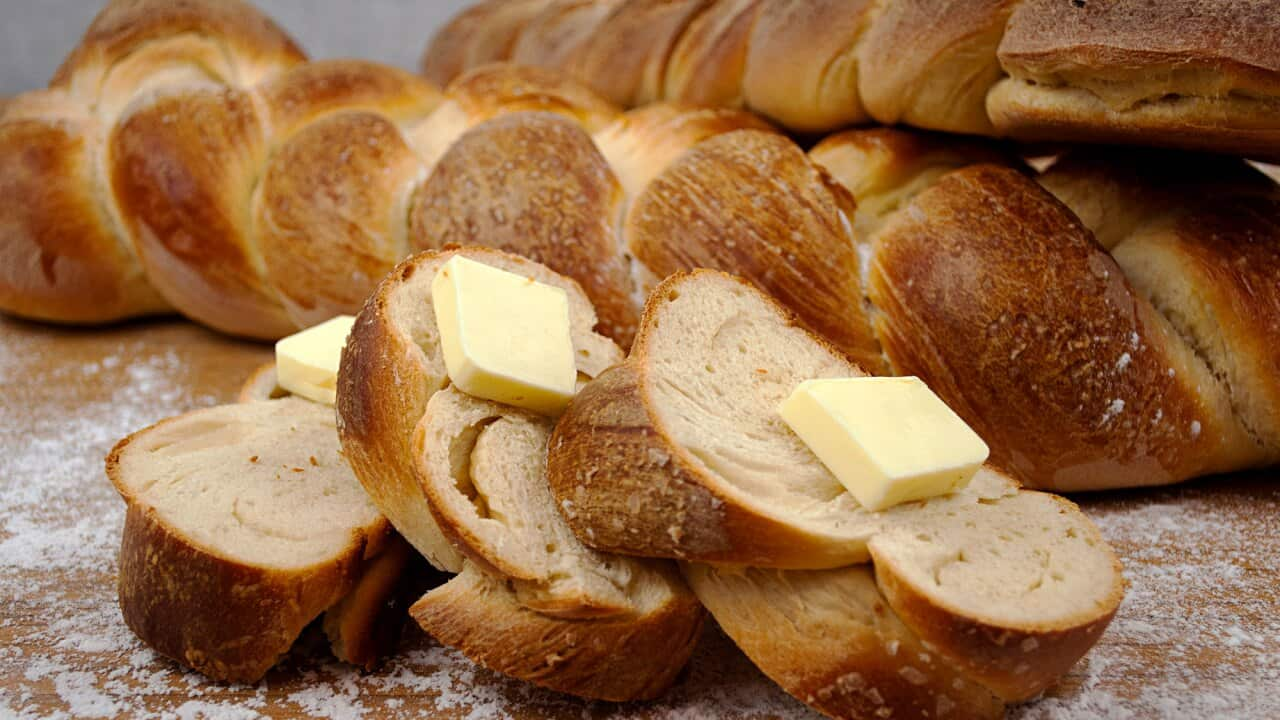"My Jewish roots stem from both sides of the family, but my strong Jewish traditions and values come from my mother's side of the family," Victoria Wein tells SBS Food.
"As a whole, we value the importance of family and customs which are shared collectively as one, and most certainly over food."
When Wein was a child, she remembers going to her grandparent's home for Passover Seder dinner, where a table for more than forty people was set. it began in the dining room and expanded all the way to the living room.
"The dinner table would be extended by trestle tables and folding chairs, [which were] set-up by all the grandsons, days before the family's annual Passover Seder, to cater to both the immediate and extended family members that would fly from interstate just for this occasion," Wein explains. "This big family Seder was the highlight of the year and was very symbolic of celebrating family cultural traditions, including sharing quality time with relatives we hadn't seen for months."
"This big family Seder was the highlight of the year and was very symbolic of celebrating family cultural traditions, including sharing quality time with relatives we hadn't seen for months."

The Wein family table for Passover has to be long to accommodate for everyone. Source: Victoria Wein
Her grandmother Shirley would make every traditional Passover Seder dish on her own, and where possible she would prepare months in advance. She would prepare the chicken soup and freeze it, and in the days before Passover Seder, she would gather the ingredients required to make traditional dishes such as and Wein's absolute favourite, her grandmother's signature classic spread.
"Passover food preparations were very much about following old family recipes, which grandmother had handwritten from her own mother and mother-in-law, and followed them to the tee. She didn't want anyone modernising or tweaking any of her classical recipes, and that's mostly why she didn't want anyone helping her prepare Seder dishes."
Wein tasks on the day involved helping grandma Shirley peel the boiled eggs, which were served in salty water, plate the food and assist in setting the tables.
"I really enjoyed the Passover Seder rituals where the whole family would sit around the Seder table and in turn, both adults and children would read from the Haggadah, our Jewish text that sets forth the order of serving and eating the Passover Seder meals," she says.
"There has been an ongoing joke in our family that within five minutes of everyone sitting down to begin the ceremony there would be no pickles left on the table.
"The Haggadah singing and prayer rituals last for about two hours, which leaves everyone eagerly awaiting and ravished, so we would all snack on the pickles to get us through. My grandmother in vain was always trying to get everyone to stop, but she loved it when at the end she would watch us all dig into her food and bond over pickles."
Our very special Passover pancakes
The second memory that she has from her childhood is a gathering of her immediate family at her grandparents' house on the Sunday morning after Seder to enjoy her grandpa's curiously named 'pombushka' pancakes.
"This recipe was made for my grandfather by his father, who migrated to Melbourne from Russia in 1927, to take to school for his lunch during the Passover period," Wein says. "It's a family mystery as to the origin of the name of this recipe, we guess it has been passed down the generations. However, it's an icon in our family and one that we will cherish and treasure for future generations."
Her grandpa Theo never cooks, but once a year during Passover, he will enter the kitchen and on the spot will whip up the ingredients for the pancakes and make them fresh for his four children, 11 grandchildren and nine great-grandchildren to enjoy with a cup of freshly squeezed orange juice. "This is what he does best, and it's what we look forward to and love every year," she tells SBS. "We appreciate and understand the sentiment behind it and when you grow up with this experience, it's a very nostalgic and pleasurable moment that we all enthusiastically wait and look forward to once a year.
"This is what he does best, and it's what we look forward to and love every year," she tells SBS. "We appreciate and understand the sentiment behind it and when you grow up with this experience, it's a very nostalgic and pleasurable moment that we all enthusiastically wait and look forward to once a year.

Victoria's grandpa making pancakes. Source: Supplied
"Grandpa will generously sprinkle the top of the pancakes with plenty of white sugar and its golden nuance on each side makes it an incredibly delicious family delicacy."
How Passover celebrations have lasted the test of time
Today, Passover hasn't changed much in the Wein family, although it has evolved as new generations join the annual family tradition.
"In the last six years to keep the tradition going and make it more accessible and easier for everyone, but mostly for my beautiful grandparents, we have some traditional delicacies brought in from a kosher store and split between the aunties, the responsibility for cake and desserts, the fruit platters and salads," Wein says.
"And together with my mum Caroline we prepare potato kugel for which she could spend an hour hand grating potato to match grandma's classic recipe."
THE KUGEL

Vegetable pudding (kugel)
Since having a family of her own, Wein has been eager to maintain the family's traditional recipes and pass them on to the next generation. To ensure this, she is constantly speaking with her grandmother to learn exactly how to make them and preserve their authenticity.
"Some recipes she has verbally shared with me and others I have stood next to her, observing her cooking methods which I have memorised," Wein says.
She also recalls the pombushka recipe from memory by observing her grandfather make it.
This is what he does best, and it's what we look forward to and love every year.
When Passover Seder was cancelled last year because of lockdown measures, Wein's family did put together a smaller version of Seder dinner, and the immediate family came together over Zoom.
Unfortunately, pombushka was not made by anyone for the first time in 2020, which is why she and the whole family are very much looking forward to them this year.
"Although we are forced to cap our dinner to 30 people, this still allows the whole Melbourne-based family to gather and once again enjoy traditional Passover Seder," she says.
"And even though grandpa suffers from arthritis and deals with daily discomfort, the thought of all of us gathering in the kitchen for him to make us pombushka, lights him up and means everything to him. As every year, he will gracefully put on a brave face, and cook us our pancakes and squeeze a cup of orange juice for everyone."
Midway through Passover, Wein has planned to fly to Byron Bay to stay with her cousin, who would have normally attended their family Seder. She has packed matzah meal to make pombushkas for him and his children, which will be the first time his little ones have this meal experience.
"Even though we don't know where this recipe stems from, it's created very special memories for several generations of my family members, and I intend to continue passing it down and recreating these moments, even if I never find out the recipes origins [and] what pombushka means."
Pombushka Passover pancakes
Serves six
Ingredients
- ½ cup water
- ½ cup full cream milk
- 1 ½ cups coarse matzah meal
- ½ tsp ground salt
- 3 eggs
- 1 cup olive oil
3 tbsp white sugar
1. In a mixing bowl add the eggs, salt, water, milk, matzah meal and mix well until a thick batter consistency is reached. If the mixture is too wet add a little more matzah meal. If the mixture is too dry add a bit more water.
2. Let the batter set to the side for five minutes. During this time add two tablespoons of olive to a fry pan and leave on a medium heat.
3. Once the fry pan is hot add two tablespoons of batter to create a round shape. Don’t overcrowd the fry pan.
4. Once golden brown on each side, remove from the frypan and place on a paper towel plate to release the excess oil.
5. After a few minutes move to a serving plate and sprinkle a generous amount of white sugar on top. Enjoy this traditional sweet Passover breakfast treat.









